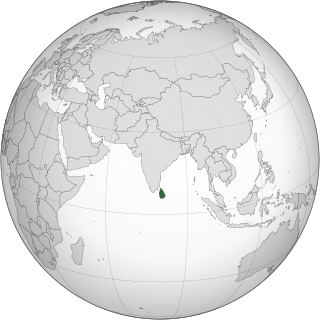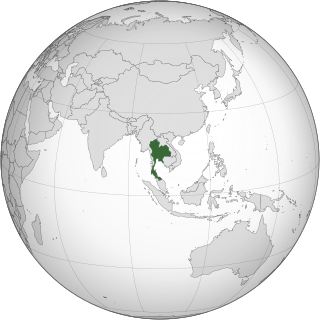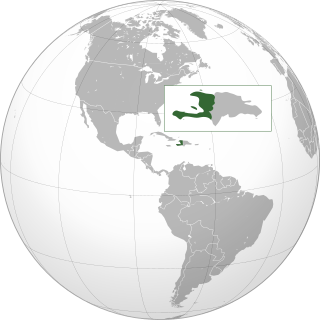Related Research Articles

Squatting is the action of occupying an abandoned or unoccupied area of land or a building, usually residential, that the squatter does not own, rent or otherwise have lawful permission to use. The United Nations estimated in 2003 that there were one billion slum residents and squatters globally. Squatting occurs worldwide and tends to occur when people find empty buildings or land to occupy for housing. It has a long history, broken down by country below.
A deed is a legal document that is signed and delivered, especially concerning the ownership of property or legal rights. Specifically, in common law, a deed is any legal instrument in writing which passes, affirms or confirms an interest, right, or property and that is signed, attested, delivered, and in some jurisdictions, sealed. It is commonly associated with transferring (conveyancing) title to property. The deed has a greater presumption of validity and is less rebuttable than an instrument signed by the party to the deed. A deed can be unilateral or bilateral. Deeds include conveyances, commissions, licenses, patents, diplomas, and conditionally powers of attorney if executed as deeds. The deed is the modern descendant of the medieval charter, and delivery is thought to symbolically replace the ancient ceremony of livery of seisin.
Adverse possession, sometimes colloquially described as "squatter's rights", is a legal principle in common law under which a person who does not have legal title to a piece of property—usually land —may acquire legal ownership based on continuous possession or occupation of the property without the permission (licence) of its legal owner.
Torrens title is a land registration and land transfer system, in which a state creates and maintains a register of land holdings, which serves as the conclusive evidence of title of the person recorded on the register as the proprietor (owner), and of all other interests recorded on the register.
An action to quiet title is a lawsuit brought in a court having jurisdiction over property disputes, in order to establish a party's title to real property, or personal property having a title, of against anyone and everyone, and thus "quiet" any challenges or claims to the title.

The Land Registration Act 2002 is an Act of the Parliament of the United Kingdom which repealed and replaced previous legislation governing land registration, in particular the Land Registration Act 1925, which governed an earlier, though similar, system. The Act, together with the Land Registration Rules, regulates the role and practice of HM Land Registry.
Australian property law, or property law in Australia, are laws that regulate and prioritise the rights, interests and responsibilities of individuals in relation to "things" (property). These things are forms of "property" or "rights" to possession or ownership of an object. Property law orders or prioritises rights and classifies property as either real and tangible, such as land, or intangible, such as the right of an author to their literary works or personal but tangible, such as a book or a pencil. The scope of what constitutes a thing capable of being classified as property and when an individual or body corporate gains priority of interest over a thing has in legal scholarship been heavily debated on a philosophical level.

In the history of Australia, squatting was the act of extrajudicially occupying tracts of Crown land, typically to graze livestock. Though most squatters initially held no legal rights to the land they occupied, the majority were gradually recognised by successive colonial authorities as the legitimate owners of the land due to being among the first white settlers in their area. The term squattocracy, a play on aristocracy, was coined to refer to squatters as a social class and the immense sociopolitical power they possessed.
The discovery doctrine, or doctrine of discovery, is a disputed interpretation of international law during the Age of Discovery, introduced into United States municipal law by the US Supreme Court Justice John Marshall in Johnson v. McIntosh (1823). In Marshall's formulation of the doctrine, discovery of territory previously unknown to Europeans gave the discovering nation title to that territory against all other European nations, and this title could be perfected by possession. A number of legal scholars have criticized Marshall's interpretation of the relevant international law. In recent decades, advocates for Indigenous rights have campaigned against the doctrine. In 2023, the Vatican formally repudiated the doctrine.
An easement is a nonpossessory right to use and/or enter onto the real property of another without possessing it. It is "best typified in the right of way which one landowner, A, may enjoy over the land of another, B". An easement is a property right and type of incorporeal property in itself at common law in most jurisdictions.
Nullum tempus occurrit regi, also abbreviated to nullum tempus, is a common law doctrine.
Possession is nine-tenths of the law is an expression meaning that ownership is easier to maintain if one has possession of something, or difficult to enforce if one does not. The expression is also stated as "possession is ten points of the law", which is credited as derived from the Scottish expression "possession is eleven points in the law, and they say there are but twelve."
In the United States, squatting occurs when a person enters land that does not belong to them without lawful permission and proceeds to act in the manner of an owner. Historically, squatting occurred during the settlement of the Midwest when colonial European settlers established land rights and during the California Gold Rush. There was squatting during the Great Depression in Hoovervilles and also during World War II. Shanty towns returned to the US after the Great Recession (2007–2009) and in the 2010s, there were increasing numbers of people occupying foreclosed homes using fraudulent documents. In some cases, a squatter may be able to obtain ownership of property through adverse possession.

Squatting in Australia usually refers to a person who is not the owner, taking possession of land or an empty house. In 19th century Australian history, a squatter was a settler who occupied a large tract of Aboriginal land in order to graze livestock. At first this was done illegally, later under licence from the Crown.

Squatting in the Republic of Ireland is the occupation of unused land or derelict buildings without the permission of the owner. In the 1960s, the Dublin Housing Action Committee highlighted the housing crisis by squatting buildings. From the 1990s onwards there have been occasional political squats in Cork and Dublin such as Grangegorman, the Barricade Inn, the Bolt Hostel, Connolly Barracks, That Social Centre and James Connolly House.

Squatting in Malaysia is the occupation of unused or derelict buildings or land without the permission of the owner. Squatting began after World War II and is governed by various laws. Recently, the government has announced its intention to house squatters in affordable housing.

Squatting in Sri Lanka occurs when people are displaced by war or natural disasters, find it difficult to transfer title or build shanty towns. The Government of Sri Lanka has attempted to regularize squatter settlements. In 2020, there were reported to be over 600,000 squatters on state land.

Squatting in Thailand was traditionally permissible under customary law and adverse possession can occur after ten years of continuous occupation. As of 2015, the capital Bangkok had over 2 million squatters, out of a population of around 10 million. A survey of slums across the country noted in 2000 that most were rented not squatted; Khlong Toei District in Bangkok contains both squatters and tenants. There are also squatters in rural areas. The 1975 Agricultural Land Reform Act aimed to redistribute land to poor people under the Sor Por Kor program and as of 2019, 36 million rai of land had been assigned.

Squatting in Haiti is the occupation of unused land or abandoned buildings without the permission of the owner. Following the Haitian Revolution (1791–1804), squatters acquired smallholdings across the country. As the capital Port-au-Prince grew, so did the informal settlements ringing it. In the Bel Air district, there is some squatting whilst most people pay rent, building their own homes. In 2004, President Jean-Bertrand Aristide was deposed in a coup and poor areas such as Bel Air and Cité Soleil erupted in violence. Peacekeepers from the United Nations Stabilisation Mission in Haiti later evicted ex-combatants squatting in the house of Aristide.

Ellis v Lambeth LBC is an English land law case regarding adverse possession. which received significant media attention.
References
- ↑ Burns 2011, p. 773.
- ↑ Malcolm, Rosalind (2020). Concentrate Questions and Answers Land Law: Law Q&a Revision and Study Guide (3 ed.). Oxford University Press. p. 89. ISBN 978-0-19-885320-6.
- 1 2 Hepburn 2013, p. 68.
- 1 2 Burns 2011, p. 786—788, 803.
- 1 2 3 4 5 Brown, Garth (20 August 2016). "Adverse possessions". Property Update . Retrieved 7 May 2021.
- 1 2 Mulliss 2009, p. 18.
- ↑ Mulliss 2009, p. 19.
- ↑ Burns 2011, p. 788.
- ↑ Burns 2011, p. 787.
- ↑ Burns 2011, p. 786.
- ↑ Burns 2011, p. 803.
- ↑ Teo, Hong Yin (2008). "A Critique of the Doctrine of Adverse Possession". Political Science: 128. CiteSeerX 10.1.1.611.8561 .
- ↑ Park, Malcolm (January 2003). "The effect of adverse possession on part of a registered title land parcel" (PDF). Retrieved 7 May 2021.
{{cite journal}}: Cite journal requires|journal=(help) - ↑ Park, Malcolm; Ting, Lisa; Williamson, Ian (November 1998). "Adverse possession of Torrens land: Parliamentary inquiry strays out of bounds". Law Institute Journal . 72 (11): 77–81. Retrieved 7 May 2021.
- ↑ Mulliss 2009.
- ↑ Burns 2011, p. 817.